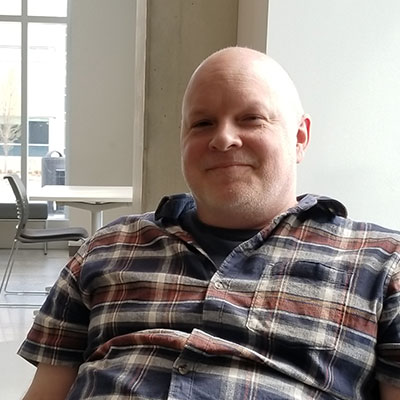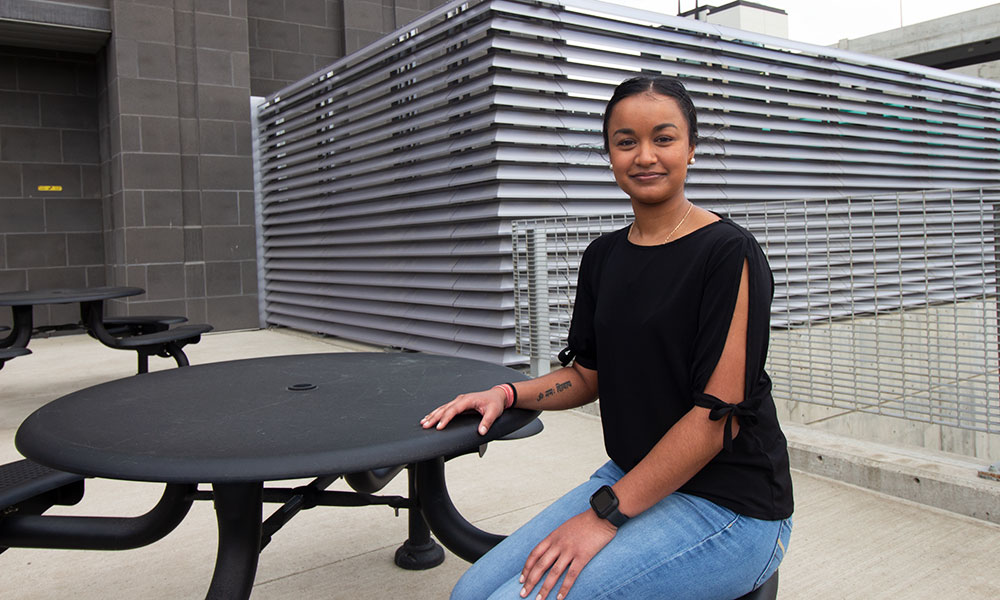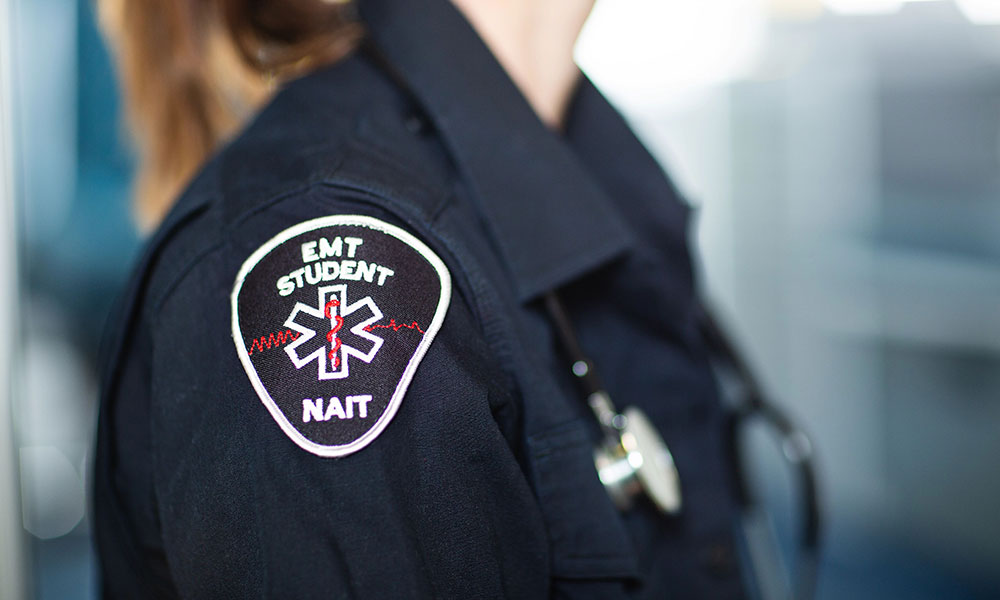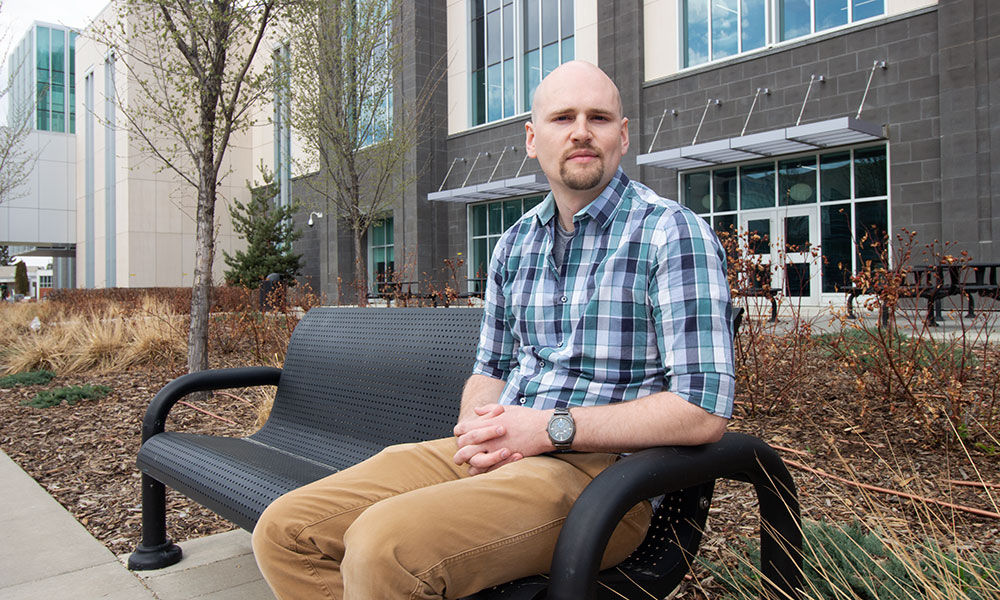Drive to make a difference and love of learning combine to strengthen Alberta health care
As if its own vital signs were under observation, paramedicine has been a major focus of attention in Alberta in recent years. High call volume can see response times struggle to keep pace. Shifts have gone understaffed. The use of ambulances for routine patient transfers has been re-examined, and more.
All of this speaks to the ever-increasing importance of prehospital health care. “A lot of the expectations have increased dramatically,” says Advanced Care Paramedic (ACP) instructor Duane Kugelstadt (Emergency Medical Technician - Paramedic ’00).
 As a teacher and current first responder, Kugelstadt has seen the profession grow to include an ever-growing array of medicines and interventions.
As a teacher and current first responder, Kugelstadt has seen the profession grow to include an ever-growing array of medicines and interventions.
“In Alberta, we’re pretty advanced as far as the world goes,” he says – which contributes to the success of Emergency Medical Responders (EMR), Primary Care Paramedics (PCP) and ACPs as a vanguard of health care.
That role goes beyond emergency calls, Kugelstadt adds. Paramedics are key to community health, providing care-in-place to seniors, palliative care patients and others.
What’s more, as paramedicine becomes better integrated with the broader system, professionals provide a wealth of information that can connect medical disciplines and improve individual outcomes.
“We’re generalists,” says Kugelstadt. “We deal with all the areas that are specialities within hospitals. We interact with a lot of different health-care professionals. There’s strength in that.”
Ultimately, that strength is rooted in the graduates who take on the responsibility of responding to everything from a crisis to the basic health needs of cities, First Nations reserves, towns and everywhere between. We asked 2023 ACP grads and former PCPs Sharda Hariepersaud and Zeke Watson why they chose such demanding careers and what keeps them working for the well-being of Albertans.
techlifetoday: How did you come to this work?

Sharda Hariepersaud: I did my PCP when I finished high school. I wanted to do something in health care but not necessarily go into nursing. I really enjoyed it [when I] started working in the field.
Zeke Watson: I started in high school with [Emergency Medical Services]. I grew up in Swan Hills and had volunteered as a junior member of the fire department, [which] handled the ambulance service for the town at the time. After I finished high school, I came to Edmonton and did my bachelor's in biology and [started] grad school.
Throughout that, I kept working as an EMR, doing evenings and weekends. After three years of grad school, I wasn't enjoying it anymore and I was like, “I need something different. I've been doing [EMR] for 10 years and I'm still enjoying it. Let's take the next step.”
Why go back to school for ACP?
Hariepersaud: I do have the goal to become something like a flight paramedic or a Stars paramedic. To do that you need to be an advanced care paramedic.
"I knew there was something more I needed."
Watson: I knew there was something more I needed – I needed to come back to school and do that little extra. I'd work on Advanced Life Support trucks with an ACP partner and see the [treatments] that they were doing. I was like, “I want to do that.”
Are your reasons for staying in the profession different from those that brought you to it?
Hariepersaud: It’s the same: I want to be able to go to someone's home and make them feel comfortable and that they are receiving the best treatment until they get to definitive [hospital] care. That's still what I want to do.
Watson: It has changed since I started, but in subtle ways. I was 17 years old when I started. It was something to do … to keep me out of trouble.
I went into the sciences because I like critical thinking – that reasoning through different avenues and pieces of evidence to put together a coherent story of, “What is going on here?”
Paramedicine is this nice blend [where] you get to be Sherlock and then do something about it. On an ambulance, there's always at least two of you. I like getting to solve that puzzle with somebody else, as a team.
Hariepersaud: When you're solving that puzzle, and you give a treatment and see its effect on a patient, we can see that difference being made. We know that, at the end of the day, we did something to either help make them better or to make their day easier.
We know it’s also a stressful job. What do you find most stressful?

Watson: The unknown aspect is a big one. We don't get definitive test results; we don't get to hear what happens to [patients].
Hariepersaud: I agree. There's been many times where you ask yourself, “Did what I do help? Did it not help?”
Another thing is the acuity of the calls. If you're going to someone very sick, going to a car accident, going to a sick kid, those are super stressful. Managing that and your own stress is important. We go into a lot of stressful situations, and we have to stay cool, calm and collected.
How do you deal with that stress?
Hariepersaud: At the end of the day, not everyone will get better. That used to beat me up a lot, because I was like, “No, it's my job, you're supposed to get better.” But sometimes that just doesn't happen.
There definitely are moments that will stick in my mind forever that haven't been good. But with those ones, you discuss them as much as you can to try and remedy that stressor. You kind of make your peace with it just by taking care of yourself and talking about it with others.
"At the end of the day, not everyone will get better."
There are lots of mental health resources available to first responders. There's also team debriefs, whether that be just with you and your partner, you, your partner and a supervisor, or a peer support team.
I enjoy de-stressing at home too, whether that's some self-care or going for a run or something like that.
Watson: For me, my kids are a big part of it. When I've got them in my arms, the world is right. It gives me that little bit of motivation and energy to go back out and try and make the rest of the world a little bit more right as well.
It sounds like you enjoy your work. In this context, is that a strange thing to ask or say?

Hariepersaud: I love my job.
Watson: There's crappy moments. But the highs are definitely about as high as they get. When you get those good moments …
Hariepersaud: … they’re good.
Watson: Over this winter, my partner and I at the end of a shift looked at each other and were like, “This felt great. This feels like the reason that we got into this job.”
It was like 34 below and we got to this 70 [year-old man] that had fallen [while] getting some groceries out of his vehicle and broke his hip. He'd been lying there with the garage doors wide open, no heater. He's freezing and in a lot of pain. By the time we got him to the hospital, he stopped shivering, he was talking normally, he was comfortable. It was like, we just made that man's day.
Having completed this part of your educational journey, what have you learned about yourselves personally?
Watson: One of the big things that I've learned is that I'm not done yet. It feels like I'm at the midpoint in my career. We learned a lot over the last two years but the nature of medicine is that it's always evolving. There's always more to learn.
Hariepersaud: I would agree with you – there's always this opportunity to learn.
For myself, when we started the ACP program, I thought it was super tough. It's very heavy: lots of reading, lots of learning new things. Finally making it to the end, I was like, “OK, maybe it wasn't that bad.” You have to be dedicated. That just shows me that, if I want to continue to pursue my career, that that's something that I am capable of doing.
I put in some long nights and lots of studying, but I think that also comes from the passion that I have for what I do.